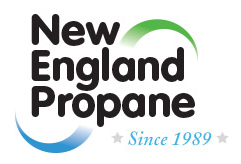Carbon Monoxide Safety
Your safety is the utmost importance to us. That’s why, as your trusted propane supplier, we believe that the best way to keep you and our other customers safe is by sharing any and all information that could help.
So, without further ado, here are a few things you should know about carbon monoxide in order to protect yourself and your family.
First of all, what exactly is Carbon Monoxide (CO)?
CO is a dangerous gas that’s produced when propane burns. High levels of CO can come from appliances that are not operating correctly, or from a venting system or chimney that becomes blocked. High levels of CO can also lead to CO poisoning, causing you to feel dizzy or sick, and can also be fatal.
Symptoms of CO Poisoning Include:
· Headache
· Dizziness
· Fatigue
· Shortness of Breath
· Nausea
If You Suspect CO to be Present…
If you or a family member shows physical symptoms of CO poisoning, or you suspect the presence of CO, get everyone out of the building and call 911 or your local dire department.
Help Reduce the Risk of CO Poisoning by Following These Tips:
· Have a New England Propane service technician check your propane appliances and related venting systems annually, preferably before the heating season begins
· Install UL-listed CO detectors on every level of your home
· Never use a gas oven or range-top burners to provide space heating
· Never use portable heating indoors unless they are designed and approved for indoor use
· Never use a barbecue grill (propane or charcoal) indoors for cooking or heating
· Regularly check your appliance exhaust vents for blockage
Be Safe, Not Sorry!
If at any moment you suspect high levels of CO, don’t hesitate to call your local fire department or 911! They don’t care if you’re right or wrong, just that you and your family are safe. We hope that this information helps! And don’t forget to call or contact us online for all of your propane needs.







